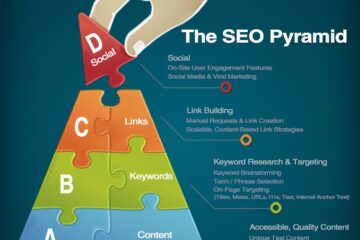Introduction
In the world of E-commerce, the competition is fierce. With so many online stores vying for the attention of potential customers, it’s crucial to find ways to stand out from the crowd. One way to do that is through search engine optimization (SEO). We are going to explore why SEO best practices are now must practice for e-commerce.

Optimizing your e-commerce site for search engines can increase your visibility, attract more organic traffic, and drive more sales. In this article, we’ll explore the importance of SEO for e-commerce brands, best practices for e-commerce SEO, key elements of e-commerce SEO, and the benefits of SEO for e-commerce sites.
Why Seo Best Practices Are Now Must Practice for E-commerce
What is SEO?
In today’s digital age, search engines have become the go-to source of information for just about everything. Whether you’re looking for a recipe, a product review, or a how-to guide, chances are you turn to Google or another search engine to find what you’re looking for. But have you ever stopped to think about how those search results are generated?

That’s where SEO comes in. SEO, or search engine optimization, is the practice of optimizing your website and content to rank higher in search engine results pages (SERPs). In this article, we’ll explore what SEO is, why it’s important, and how you can use it to improve the visibility and reach of your website.
What is E-commerce SEO?
Online shopping has never been more popular, and as a result, the e-commerce industry is more competitive than ever. If you’re an e-commerce business owner, you’re constantly looking for ways to stand out from the crowd and attract more customers to your site.

That’s where E-commerce SEO comes in. E-commerce SEO is a specialized form of search engine optimization that focuses on optimizing your online store to improve its visibility, attract more organic traffic, and ultimately drive more sales. In this article, we’ll dive into what E-commerce SEO is, why it’s important, and how you can use it to take your online business to the next level.
The Importance of SEO for E-Commerce Brands
SEO is critical for E-commerce brands for several reasons:
- Increased visibility: SEO can help commerce sites rank higher in search results, increasing their visibility and exposure to potential customers.
- Improved credibility: High search rankings can give E-commerce brands a sense of credibility and trustworthiness, helping to build customer loyalty and repeat business.
- Better user experience: SEO involves optimizing website content and structure to make it easier for users to find what they’re looking for. This can lead to a better overall user experience and increased engagement on commerce sites.
- Cost-effective marketing: Compared to other marketing methods, SEO can be a cost-effective way for commerce brands to promote their products and reach their target audience.
SEO is important for E-commerce websites because it helps them attract more organic traffic, generate more leads, and increase their revenue.
Best Practices for SEO on E-Commerce Brands
Here are some best practices for E-commerce SEO:
- Keyword research: Identify relevant keywords and phrases that your target audience is searching for, and incorporate them into your website’s content.

- On-page optimization: Optimize your product pages, category pages, and other areas of your site with relevant keywords, meta descriptions, and other on-page SEO techniques.
- Site structure: Ensure that your E-commerce site’s structure is easy to navigate and that all pages are accessible to search engines.
- Mobile optimization: With more and more people shopping on their smartphones, it’s crucial to ensure that your E-commerce site is optimized for mobile devices.
- Link building: Build high-quality backlinks to your commerce site to improve its credibility and visibility.
SEO best practices for e-commerce include optimizing product pages with relevant keywords, creating high-quality content, using descriptive and unique meta descriptions and title tags, optimizing images, and ensuring that the website is mobile-friendly and has a fast load time.
Key Elements of E-commerce SEO
Some of the key elements of commerce SEO include:
- Product descriptions: Optimize your product descriptions with relevant keywords and unique, engaging content.
- Category pages: Use relevant keywords and meta descriptions to optimize your category pages.
- User-generated content: Encourage customers to leave reviews and ratings on your product pages, which can help to improve your site’s credibility and visibility.
- Site speed: Ensure that your E-commerce site loads quickly, as site speed can have a significant impact on your search rankings.
- 10 E-commerce SEO Strategies
Here are 10 E-commerce SEO strategies to consider
- Conduct thorough keyword research and incorporate relevant keywords into your website’s content.
- Optimize your product pages with engaging, unique content and relevant keywords.
- Ensure that your E-commerce site is easy to navigate and has a clear site structure.
- Use relevant meta descriptions and tags to optimize your site’s on-page SEO.
- Build high-quality backlinks to your E-commerce site to improve its credibility and visibility.
- Encourage customers to leave reviews and ratings on your
FAQ
How Do Search Engines Like Google Rank E-commerce Websites in Search Results?
Google ranks E-commerce websites in search results based on various factors, including website structure, content relevance, keyword usage, page speed, backlinks, and user engagement. Google uses complex algorithms to evaluate these factors and assign a rank to each website.
How Can Keyword Research Help Improve the SEO of an E-commerce Website?
Keyword research can help E-Commerce websites identify the most relevant and popular keywords that potential customers use to search for products or services. By using these keywords in website content, E-commerce websites can improve their visibility and ranking in search engine results in pages.
Why is Mobile Optimization Important for E-commerce SEO?
Mobile optimization is important for E-commerce SEO because more than half of all online searches are conducted on mobile devices. A website that is not optimized for mobile devices may have a higher bounce rate, lower engagement, and lower conversion rates.
What Are Some Strategies for Building High-quality Backlinks to an E-commerce Website?
Some strategies for building high-quality backlinks to an E-commerce website include guest posting on relevant blogs and websites, creating valuable and shareable content, participating in industry forums and communities, and partnering with influencers and other businesses.
How Can User Experience and Site Speed Impact SEO for E-commerce Websites?
User experience and site speed can impact SEO for E-commerce websites because Google and other search engines use various metrics, such as bounce rate, time on site, and page load speed, to evaluate user engagement and satisfaction. A website that provides a positive user experience and fast site speed is likely to have higher search engine rankings.
What Are Some Common Mistakes to Avoid When Implementing SEO for E-commerce?
Some common mistakes to avoid when implementing SEO for E-commerce include using keyword stuffing, ignoring user experience and site speed, using duplicate content, neglecting mobile optimization, and ignoring data and analytics.
How Can E-commerce Businesses Measure the Success of Their SEO Efforts?
E-commerce businesses can measure the success of their SEO efforts by tracking various metrics, such as organic traffic, conversion rates, bounce rates, and search engine rankings. Data and analytics tools, such as Google Analytics, can provide valuable insights into the effectiveness of SEO strategies.
Can E-commerce Websites Succeed Without SEO?
It is possible for e-commerce websites to succeed without SEO, but it is unlikely. SEO is an important part of online marketing, and without it, e-commerce websites may struggle to attract new customers and generate sales.
How Long Does It Take to See Results From SEO for E-commerce?
The amount of time it takes to see results from SEO for e-commerce can vary depending on a number of factors, including the competitiveness of the industry, the quality of the website’s content, and the effectiveness of the SEO strategy. Generally, it can take several months to a year or more to see significant improvements in search engine rankings and traffic.
Conclusion
In today’s digital age, e-commerce is a booming industry, with more and more people shopping online for everything from groceries to clothing to electronics. With so many online stores out there, it can be challenging to get your e-commerce site noticed. We have explored, why SEO best practices are now must practice for e-commerce.
However, by implementing effective SEO strategies, you can increase your visibility, attract more traffic, and drive more sales. By following the best practices and key elements of e-commerce SEO, you can give your online store the competitive edge it needs to thrive in today’s digital marketplace.
You may read also – 5 Ways to Effectively Spend Your End-of-Year Marketing Budget





0 Comments